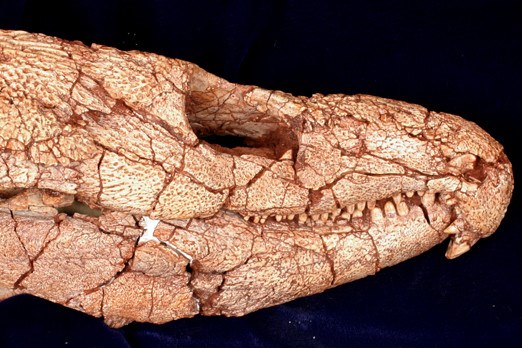A local oral surgeon diagnosed the world’s oldest cavity.
Bruce Pynn had an old classmate from the University of Toronto ask for his expertise regarding a fossil her research team was examining of a crocodile-sized reptile found in Texas.
The 275 million-year-old animal’s jaw was examined by the University of Toronto’s Robert Reisz and his team, including lab research associate Diane Scott who brought the fossil to Thunder Bay for a CT scan at the Thunder Bay Regional Health Sciences Centre.
Pynn said he was surprised by what he saw.
“The CT scan looked exactly as it would if it was a patient today,” he said. “It had a nice abscess in the bone right where the fractured tooth was.”
For Reisz, the discovery is significant because it’s the first potential dental abscess found in a fossil, said Pynn.
In article in the Toronto Star, Reisz said the reptile was one of the first who learned to eat vegetation instead of relying solely on hunting. Therefore, they developed long-lasting, tough teeth with deep roots.
Reisz’ team also figures human teeth today are direct descendants of this animal.
How the tooth was damaged is unknown but Pynn had a couple of theories.
“The tooth fractured off during either a scuffle with another animal or eating something hard and crunchy just like you would break a tooth off today,” he said. “Eventually the bacteria took hold and the tooth abscessed.”
Sign in or register
- Messages
- Post a Listing
- Your Listings
- Your Profile
- Your Subscriptions
- Your Likes
- Your Business
- Support Local News
- Payment History
Registered Users
Already have an account?
New Users
Create a free account.
